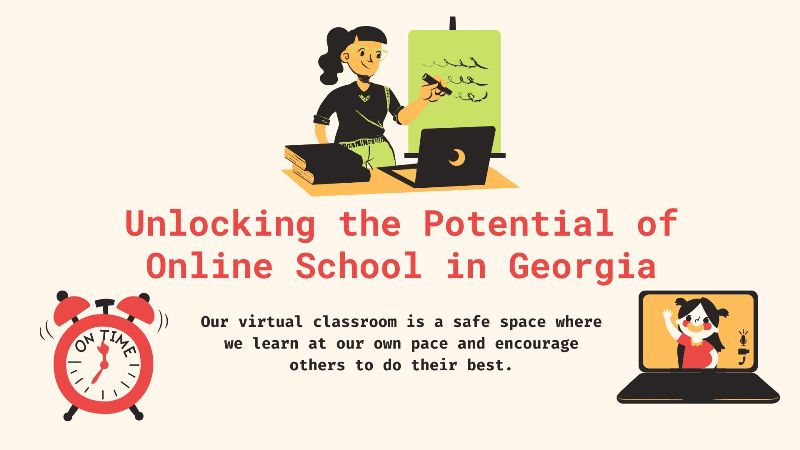
Certainly! Let’s explore the potential of online schools in Georgia. These schools offer a personalized approach to learning, providing students with a flexible and tuition-free education. Here’s what you need to know:
Potential of Online School in Georgia
- Tuition-Free Public Online Schools in Georgia:
- These schools follow the same academic calendar as traditional brick-and-mortar public schools.
- Students benefit from instruction by Georgia-certified teachers.
- The curriculum includes interactive lessons, learning games, and videos.
- As a parent or responsible adult, you play a crucial role as the Learning Coach. You help your students stay on track, record daily attendance, and communicate with teachers.
- The commitment varies by grade level:
- Grades K–5: About 4 to 6 hours per day working with your student on lessons.
- Grades 6–8: Your student begins monitoring their schedule, but you continue to provide support for about 1 to 3 hours per day.
- Grades 9–12: Your student takes greater responsibility, communicates with teachers, and focuses on postsecondary goals. You spend about 1 to 3 hours per day working with your student.
- Examples of students thriving in this environment:
- Mia (Grade 11): Pursuing certifications for a healthcare career.
- Josh (Grade 8): Advancing at his own pace and focusing on science experiments.
- Peter (Grade 2): Working at an advanced level while still enjoying childhood.
- Explore more student stories and families’ experiences.
- Destinations Career Academy of Georgia (Grades 6–9):
- Discover your future and get a head start on your career and college goals.
- A flexible, tailored program linked to career readiness and exploration.
Enrolling in an school involves a few essential steps. Whether you’re considering a tuition-free online public school or a private online school, here are the common requirements:
- Proof of Identity and Age:
- You’ll need to submit your child’s birth certificate as proof of identity and age.
- Proof of Residence:
- Provide documentation that verifies your residential address. This could be a utility bill, lease agreement, or other official documents.
- Vaccination Records and Medical History:
- Just like traditional schools, online schools require vaccination records and information about your child’s medical history.
- Emergency Contact Information:
- Ensure you have updated emergency contact details on file.
- Educational Documentation:
- If your child has an Individualized Education Program (IEP), a 504 plan, or other educational documentation, make sure to include it.
- Report Cards (if applicable):
- If your child has attended school previously, provide any available report cards.


